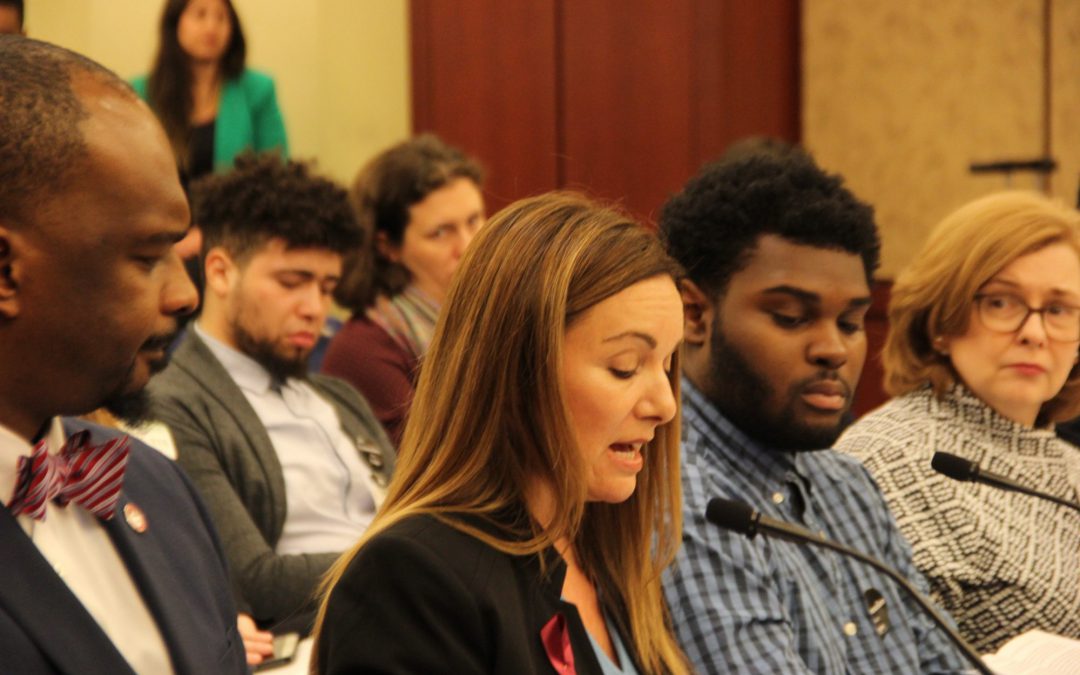WASHINGTON — Hours after a student shot two classmates in Maryland on Tuesday, a teacher who survived the Marjory Stoneman Douglas shooting in Florida told House Minority Leader Nancy Pelosi and other lawmakers that students in her school still are often absent because of the mental trauma from the shooting that killed 17 people.
Stacey Lippell, a language arts teacher from Parkland, Florida, described making life or death decisions about whether to open her classroom door as well as the feelings of seeing her colleague dead. She said that since the shooting, about 10 percent of her students are absent from school on any given day because they are not coping well.
Tuesday’s panel was held by Democrats to endorse both gun control measures like banning assault-style weapons and high-capacity ammunition clips and to support funding for school counselors and social workers to help identify individuals who display risk factors. In addition to Pelosi, Reps. Ted Deutch, who represents Parkland, and Elizabeth Esty, who represents Newton, Connecticut, where the 2012 Sandy Hook school shooting occurred in which 26 people were killed, attended the discussion.
Democratic Whip Steny Hoyer, who represents Great Mills, Maryland, where Tuesday’s shooting took place, did not attend the panel to instead visit his district.
Democratic senators and panelists called for bans on assault weapons and other gun control measures and rebuked the idea of arming teachers often promoted by Republicans.
“I had seconds to respond so if I had a gun it would be useless and probably dangerous,” Lippel said when questioned if she felt arming teachers could prevent shootings.
Panelists agreed that more guidance counselors and social workers in schools could help support students’ social and emotional wellbeing. Counseling Today reports that the average public school ratio of students-to-counselor is 482-1.
Speakers also warned that some proposed solutions, including “no-tolerance policies,” could be harmful to students.
Rep. Bobby Scott, D-Va., said that expulsions and suspensions are actually harmful in curbing problematic behavior. He also pushed back against Republican criticism of an Obama-era guidance that aimed to limit high levels of punishment against minority students.
A New York City teen said that a heavy police presence on campus can sometimes be harmful.
“I’m a big African-American teenager. What I fear the most is that if I make the wrong move or start playing around with my friends, a cop will come and tackle and handcuff me,” said Coldayne Hayden, a student at the High School for Energy and Technology in New York City.
The February shooting in Parkland has put these issues back in the spotlight. It has spurred a grassroots gun control movement led by shooting survivors and a series of protests including a national school walk out day last week and a march scheduled for this Saturday. The March for Our Lives is this Saturday and there will be 826 marches worldwide.
According to a Democratic press release, Education Secretary Betsy DeVos was invited to speak on the panel but declined.

